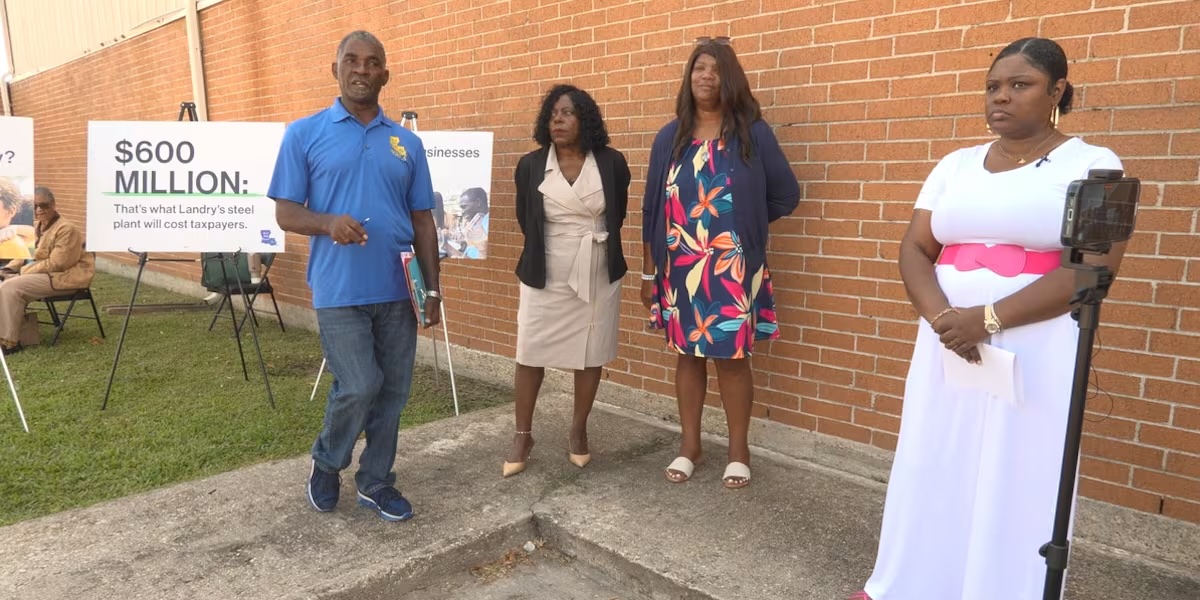Donaldsonville, La (AUGUST 21, 2025). – At a press conference yesterday at the Donaldsonville Lemann Center, residents and faith leaders from across Ascension Parish raised strong opposition to plans for new industrial facilities in the historic community of Modeste, Louisiana. The proposed plans account for new development from River Parishes Sequestration, Ascension Clean Energy, CF Industries, and Hyundai Steel – the removal of residents from over 17,000 acres of land—land that generations of families have called home.
While not physically present, the Hip Hop Caucus voiced unwavering support for the people of Modeste and Rural Roots Louisiana, highlighting that protecting communities from pollution is central to advancing racial, economic, and cultural justice.
“Communities like Modeste have carried the burden of pollution and disinvestment for decades,” said Jasmine Gil, Associate Senior Director, Think 100%, who leads the organization’s environmental justice work. “We stand in solidarity with the residents demanding a future built on clean air, safe water, and economic opportunity—not displacement and disease. True progress means investing in people, not not polluters .”
Pastor Joseph of Mount Triumph Baptist Church and member of Rural Roots Louisiana spoke directly to the community’s pain and frustration: “Enough is enough. Our elected officials talk about jobs and progress, but for over 60 years, facilities like CF Industries have taken from our communities without giving back. We want clean air, clean water, and clean soil—not more pollution, health risks, and displacement.”
Courtney Harris, speaking on behalf of Rural Roots Louisiana, added: “Modeste is not just land. It is family, history, and culture. To clear this land is to erase more than homes; it is to erase heritage. Steel and ammonia facilities bring more than jobs—they bring pollution that threatens our health, our environment, and our way of life.”
Twila Collins, a lifelong Modeste resident, shared a personal story of losing her nine-year-old child to an asthma attack and her mother to cancer, both of whom lived in the shadow of existing industrial plants. “No amount of money can buy the love and safety we share as a community,” she said. “We have a right to live healthy, dignified lives without being forced out for another industrial gamble.”
Ashley Ganard, founder of Rural Roots Louisiana, called on leaders to reject heavy industry and invest instead in true economic development: grocery stores, schools, green spaces, and small businesses that serve residents rather than displace them.
Residents warned that the proposed plants would only worsen air pollution, traffic, and health crises in a region already overburdened by industry. They demanded accountability from parish leaders, state officials, and federal policymakers, urging them to prioritize community well-being over corporate profits.
“We want to thrive,” Harris concluded, “but we also want to stay alive. The future of Louisiana cannot come at the cost of its people.”
